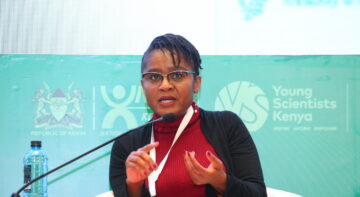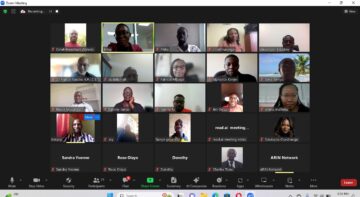Actualités

AFIDEP Executive Director Eliya Zulu participated in the Southern African Development Community (SADC) Regional Green Climate Conference that took place in Lilongwe, Malawi from 13th to 14th April 2022.
The conference provided a platform for the region to assess the status of climate action in the region; connecting international commitments with regional, national and sub-national initiatives and to identify how to overcome barriers to ensuring that Southern Africa can meet its development objectives in the context of a changing climate.
In his keynote, Prof. Sosten Chiotha, Regional Director of LEAD SEA and a member of the BUILD Consortium called for partnerships and new ways of working to empower African citizens to drive climate action and build a greener and more sustainable future. Prof. Chiotha added that these new ways included;
- Providing new skills and knowledge,
- Driving innovation and entrepreneurship,
- Creating new businesses, products and services,
- Investing in people, infrastructure and start-ups.
Prof. Chiotha highlighted how the BUILD Project provides great opportunities to build capacity for integrated development planning by integrating population, environment and development (PED) action in climate change adaptation and mitigation to accelerate the achievement of development goals including the 2020-2030 SADC Regional Indicative Strategic Development Plan. Prof. Chiotha also promoted Evidence-Informed Decision Making (EIDM) and called for the involvement of researchers to guide climate action policies and actions in Africa.
In his remarks, SADC Deputy Executive Secretary Dr Thembinkosi Mhlongo noted that the Southern African region is one of the worst-hit by climate change. Dr Mhlongo emphasized that the region needs to be proactive to avoid further climate change related disasters.
The Minister of Forestry and Natural Resources, Republic of Malawi, Hon. Eisenhower Mkaka echoed President Lazarus Chakwera’s rallying call urging SADC member states to find and implement climate change interventions that minimise damage and disruption of lives.
« Sub Saharan Africa is uniquely susceptible to climate change and has low resilience. Tropical cyclones have brought damage and affected lives and in Malawi, communities have been displaced, people died and some remain missing. » Hon. Mkaka added.
In his closing remarks Hon. Mkaka thanked AFIDEP for committing to support the Government of Malawi and SADC in implementing key recommendations of the Regional Green Climate Conference through the BUILD Project and other programmes at the Institute.
The support from AFIDEP will include technical support to strengthen the capacity of SADC member states in applying systems thinking and integrated development planning. This will ensure that the region’s climate change and sustainable development responses are holistic and focused on definitively addressing the root causes of vulnerability to climate change and poverty while conserving the environment.
The conference brought together participants from SADC member states, development partners, Non-Governmental Organizations and civil society, local communities and leaders, academia and researchers, the private sector and marginalized groups such as women and youth.
Related Posts




